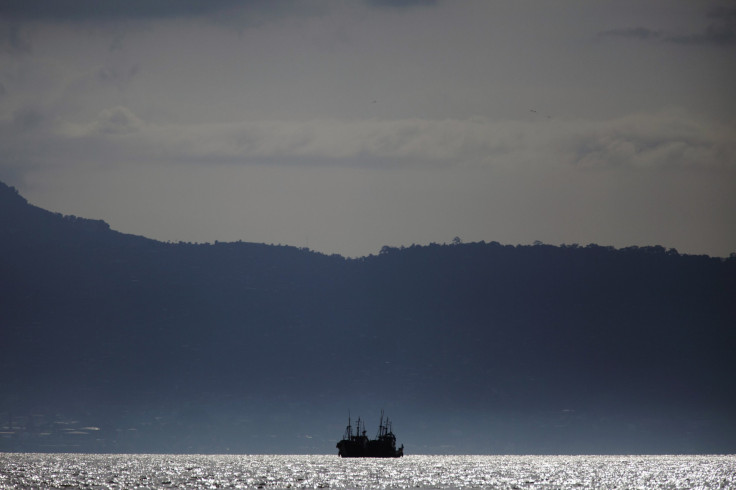Chinese Companies Illegally Fishing Off Coast Of West Africa: Greenpeace Study

Chinese companies have been illegally fishing in West Africa and, at times, falsifying their gross tonnage and whereabouts, according to the findings of a two-year investigation conducted by environmental campaign group Greenpeace. The Chinese vessels were reportedly operating without licenses or in prohibited areas off the coast of West Africa.
At least 74 fishing vessels owned and operated by four Chinese Distant Water Fishing (DWF) companies, including the country’s largest DWF company, China National Fisheries Corporation (CNFC), have been exposed in 82 potential cases of illegal, unreported and unregulated (IUU) fishing activities and gross tonnage fraud in the waters off Senegal, Guinea, Guinea-Bissau and Ghana. The cases date between 2000 and 2014, according to the report.
“While China extended a hand in friendship during the Ebola outbreak, rogue Chinese companies were unlawfully exploiting West Africa’s marine environment. They were taking advantage of weak enforcement and supervision from local and Chinese authorities to the detriment of local fishermen and the environment,” Rashid Kang, head of Greenpeace East Asia’s China Ocean Campaign, said in a statement.
The cases were reported by the Surveillance Operations Coordination Unit of the Senegal-based Sub-Regional Fisheries Commission, Greenpeace and compiled from several official lists of infractions from coastal states in West Africa, according to the organization.
A Greenpeace ship, which sailed through the economic zones of Senegal, Guinea-Bissau and Guinea between Oct. 26 and Nov. 21 in 2014, found 16 illegal fishing activities by 12 Chinese vessels, the organization said. Some of the ships were reporting false Automatic Identification System (AIS) information, including data that suggested they were in Mexican waters, according to the Greenpeace report.
The CNFC under-reported gross tonnage for 44 of the 59 vessels it operated in West Africa -- a practice that allows companies to evade licensing fees -- while also giving these vessels illegal access to restricted areas.
“While the Chinese government is starting to eliminate some of the most destructive fishing practices in its own waters, the loopholes in existing policies lead to a double standard in Africa,” Ahmed Diamé, Greenpeace Africa Ocean Campaigner, said in the statement. “It’s time African governments strengthen governance and close all loopholes in existing laws.”
© Copyright IBTimes 2024. All rights reserved.












